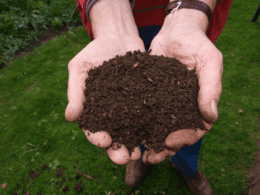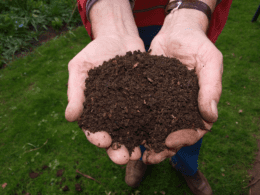Are you a gardener or environmentally conscious person looking for ways to recycle your kitchen waste? Composting is a great way to turn your food scraps into nutrient-rich soil for your garden. But what about composting meat? The debate in the composting community is whether meat is a suitable addition to your compost pile.
In this article, we will explore the pros and cons of composting meat and provide you with tips on how to do it safely and effectively. Composting meat can be a great way to reduce food waste and create a more sustainable lifestyle. However, there are some risks and considerations to take into account before throwing your leftover chicken bones into the compost bin.
In this article, we will examine both the advantages and disadvantages of composting meat, so you can make an informed decision about whether it’s right for you. We’ll also provide you with tips for successful composting, so you can ensure that your compost pile is healthy and safe for your garden and the environment.
Quick Takeaways
- Meat is organic and compostable, but composting meat requires extra care to avoid spreading pathogens and attracting pests.
- Composting meat can recycle kitchen waste and add beneficial ingredients to compost while creating less smell.
- There are different ways to compost meat, such as burying, using a composting bin, or adding to an outdoor composting system, but the method used affects the decomposition time.
- Achieving successful composting of meat requires balancing nitrogen and carbon materials, monitoring compost temperature, and turning compost to increase oxygen flow and boost bacterial action.
Are There Any Fire Risks Associated with Composting Meat?
When composting meat, it is crucial to follow proper composting fire safety precautions. The decomposition process of meat can generate heat, which, if not controlled, may lead to a fire. Ensure your compost pile is well-maintained, and avoid piling large amounts of meat at once. Regularly monitor the temperature and moisture levels of the compost to minimize the risk of fire.
Pros of Composting Meat
You’ll be happy to know that composting meat has a number of pros. One major benefit is that it recycles kitchen waste, which is great for the environment. Rather than throwing your meat scraps in the trash and contributing to landfill waste, composting allows you to turn them into something useful.
In addition, composting meat adds beneficial ingredients to the compost, such as nitrogen, which helps plants grow. Plus, it creates less smell than throwing meat in the trash. One way to compost meat is by using the Bokashi method. This anaerobic process quickly breaks down material and reduces odors and pests.
It’s a great option for those who want to compost meat but are worried about the downsides. By composting meat instead of disposing of it in the trash, you’re doing your part to reduce waste and help the environment.
Cons of Composting Meat
If you decide to compost meat, keep in mind that extra care is needed to reduce the spread of pathogens and to deter pests. Meat is a dense nitrogen source that can attract unwanted pests like rats, flies, and maggots. Additionally, meat can harbor harmful bacteria and pathogens that can cause illness if not properly handled.
To reduce the spread of pathogens, make sure to cook meat scraps before adding them to your compost pile. This will kill any harmful bacteria present and make the meat safer to handle. It’s also important to dice up the meat to jump-start the decomposition process and to balance nitrogen and carbon materials in your compost. To deter pests from your compost pile, consider using an enclosed compost bin or adding a layer of dirt or sawdust. By taking these precautions, you can safely compost meat and reap the benefits of recycling your kitchen waste.
| Pathogen Spread | Pest Attraction | ||
|---|---|---|---|
| Cook meat scraps before adding to compost | Meat is a dense nitrogen source that can attract pests like rats, flies, and maggots | ||
| Dice up meat to jump-start decomposition process | Enclosed compost bin or layer of dirt/sawdust can deter pests from compost pile | ||
| Balance nitrogen and carbon materials in compost | Harmful bacteria and pathogens can cause illness if not properly handled | Properly composted materials can improve soil health and reduce waste in landfills. |
Can Nightcrawler Composting be Used for Meat Composting?
Yes, nightcrawler composting can be used for meat composting. According to the worm farming composting guide, nightcrawlers are efficient at breaking down organic material, including meat. However, it’s important to monitor the composting process closely to prevent any potential issues with odors or pests.
Tips for Successful Composting
To ensure successful decomposition of organic materials, you need to monitor the temperature of your compost pile with a thermometer and regularly turn the pile to increase oxygen flow. This is especially important when composting meat, as it requires specific conditions to break down properly.
Meat decomposition can attract pests and produce unpleasant odors, so it’s crucial to keep your compost pile in check. Consider using composting containers to help control the decomposition process. Bokashi systems are great for handling meat scraps since the anaerobic process quickly breaks down material and reduces odors and pests. Traditional outdoor composting systems require special handling to deter pests and odors, but an enclosed compost bin can help prevent these issues.
Remember to balance nitrogen and carbon materials in your compost, and use trial and error to determine the correct ratio for your specific needs. By following these tips, you can successfully compost meat and contribute to a healthier environment.
Frequently Asked Questions
Can I compost all types of meat, including bones and fat?
Yes, you can compost all types of meat, including bones and fat. However, you need to be careful with meat composting ratios and composting meat in urban areas. Follow the tips mentioned in the article to ensure safety and success.
How do I prevent pests from being attracted to my meat compost?
To prevent pests and control odor in your meat compost, use an enclosed compost bin or add a layer of dirt/sawdust. Turning compost increases oxygen flow and deters pests. Ensure correct nitrogen and carbon ratio.
Is it safe to use meat compost on vegetable gardens?
Meat compost benefits vegetable gardens, but safety precautions must be taken. Ensure compost has reached proper temperature, bury remnants, and wash vegetables before eating. Follow tips for successful composting.
Can I compost meat in a traditional outdoor compost bin without using a special system?
Yes, you can compost meat in a traditional outdoor compost bin, but it requires special handling to deter pests and odors. Use meat composting techniques and balance nitrogen and carbon materials for nutrient benefits of composted meat.
How often should I turn my compost pile when composting meat?
To keep odor under control, turn your compost pile every 3-4 days when composting meat. Composting frequency depends on temperature and moisture, but turning regularly can speed up the process and prevent pests.









